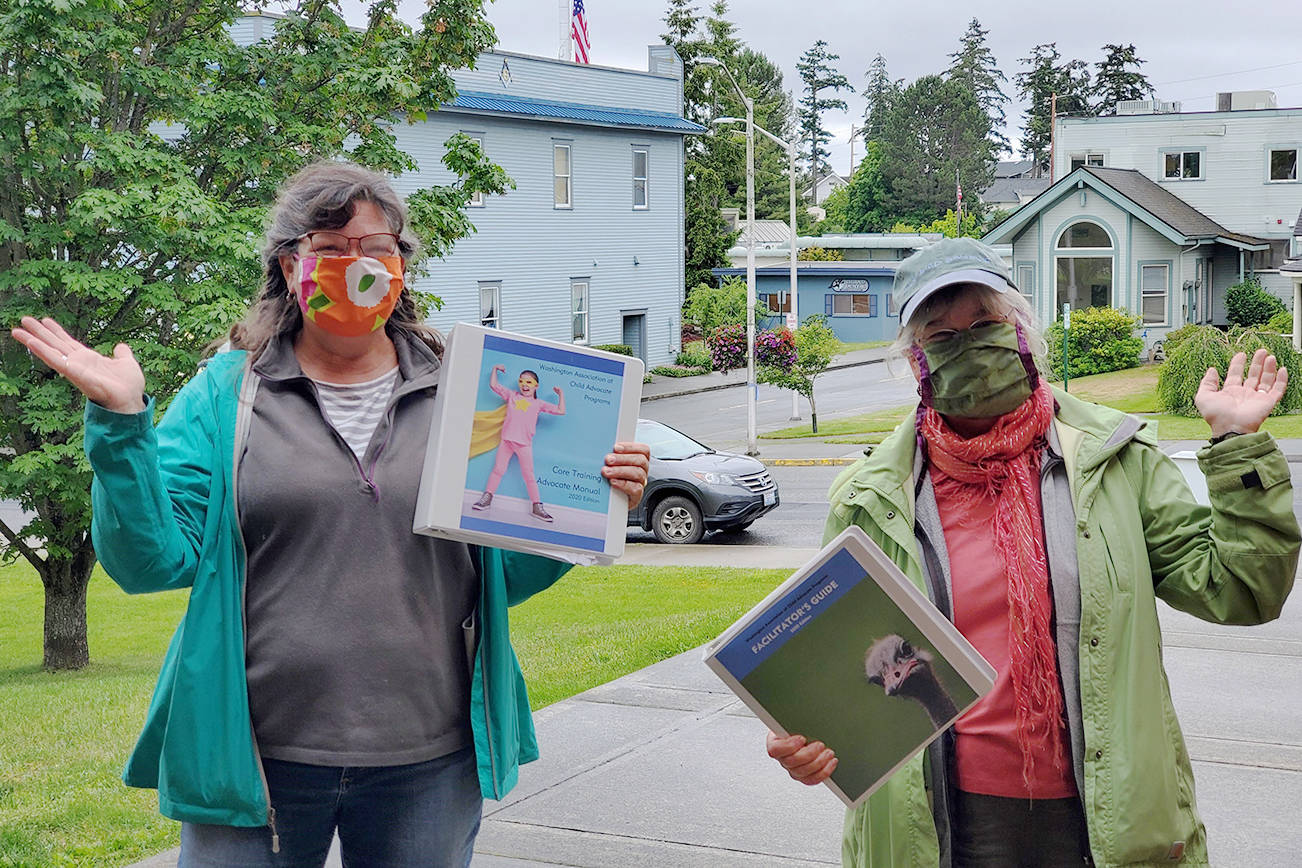When a child has been removed from their home for suspected abuse, neglect, or abandonment, there are many services in San Juan County that can keep them safe.
Some island programs work to establish the child in a safe alternative until parents can be determined by the superior court judge to be able to resume parenting responsibilities.
One such program, a division of the county’s superior court, is the Volunteer Guardian Ad Litem program. According to San Juan County Juvenile Court Administrator Linnea Anderson, this program handles approximately 20 cases of abuse, neglect, or abandonment annually.
Guardian ad litem means “Guardian for the case” in Latin, and the VGAL program’s purpose is to ensure that a child’s right to a safe, permanent home is acted on by the Court in a sensitive and expedient manner, according to the county website. Anderson explained that each child has a trained volunteer who stays with the child during the entire case proceeding making sure that the child has someone who represents the child and what the child wants and needs.
“Volunteer guardians ad litem offer important continuity to children and families involved in dependency, as they remain present and involved in the case even when social workers and foster parents may change,” San Juan County Superior Court Judge Kathryn Loring said. “Volunteer guardians ad litem also provide essential, objective information to the Court about what is transpiring in the families’ lives and what is in the children’s best interests.”
Lenor Bayuk, who established San Juan County’s VGAL program in 1991, retired at the end of 2020. Cheryl Kringles will be replacing Bayuk as VGAL program coordinator, according to Anderson.
“[Kringles] is incredibly kind and knowledgeable and has added to efficiency and support of the program,” Anderson said.
The VGAL program offers 32 hours of free training for new volunteers each year, according to Anderson, including a new training on March 8.
According to a training manual from the San Juan County Juvenile Court Services, VGAL training includes preparing advocates to ensure that the system acts responsibly toward the child; provides consistent follow-up on cases progress and complies with court orders; review case documents; conducts an independent assessment of the case from the perspective of a neutral third party; and develops recommendations for the court.
In addition to the VGAL services, Anderson explained there is a parent ally who leads classes such as Shelter Care 101 and Dependency 101 with dependency families.
“These classes are intended to assist the parents with peer support and education for families,” Anderson said. “We know that people who engage with the parent ally support have better outcomes.”
With the blossoming challenges of COVID-19, Anderson explained filed reports of abuse, neglect, and abandonment have decreased considerably. While this may seem like good news, reports of child abuse are down close to 50 percent across Washington, King County Prosecuting Attorney’s Office Special Assault Unit Chairperson Ben Santos told KOMO News. Advocates are concerned with schools shut down, abuse is still happening, but victims aren’t getting the help they need.
COVID-19 has affected how the VGAL program operates, according to Anderson — volunteers are not going out in the field, for example.
“Everyone is struggling with the lack of connection and living in this virtual world,” Anderson said. “Volunteers are doing facetime and Zoom and it is very challenging. We are doing the best we can just like everyone else.”
Anderson noted her main message to the community is “If you see something, say something.”
“You may be able to help give critical information to help a child get the help they need,” Anderson said. “Parenting can be isolating under any conditions, and under these conditions, with schools shut down and COVID-19 restrictions, the conditions can be excruciating.”
According to Anderson, many families or children don’t know where to turn. She said she directs concerned parents to the Washington State Department of Children, Youth and Families website, https://www.dcyf.wa.gov/, which has tips on how to report abuse or neglect, safety tips for protecting your baby and abuse prevention tips.
“One of the great silver linings from the pandemic is with the advent of technology, courts are becoming more virtual,” Anderson said.
VGAL service to islands other than San Juan has been difficult previously due to the ferries, according to Anderson. Islanders can now volunteer for virtual programs, get training, or receive VGAL services.
To report suspected child abuse or neglect, call the Washington State Department of Social and Health Service’s Child Abuse and Neglect Hotline at 1-866-363-4276.
To volunteer for the VGAL program, call 360-370-7440.
“Volunteer Guardian ad Litem can be hard emotional work but be very rewarding knowing that I can have an impact,” VAGL volunteer Liz Covert said. “I do it for the kids and their families.”



